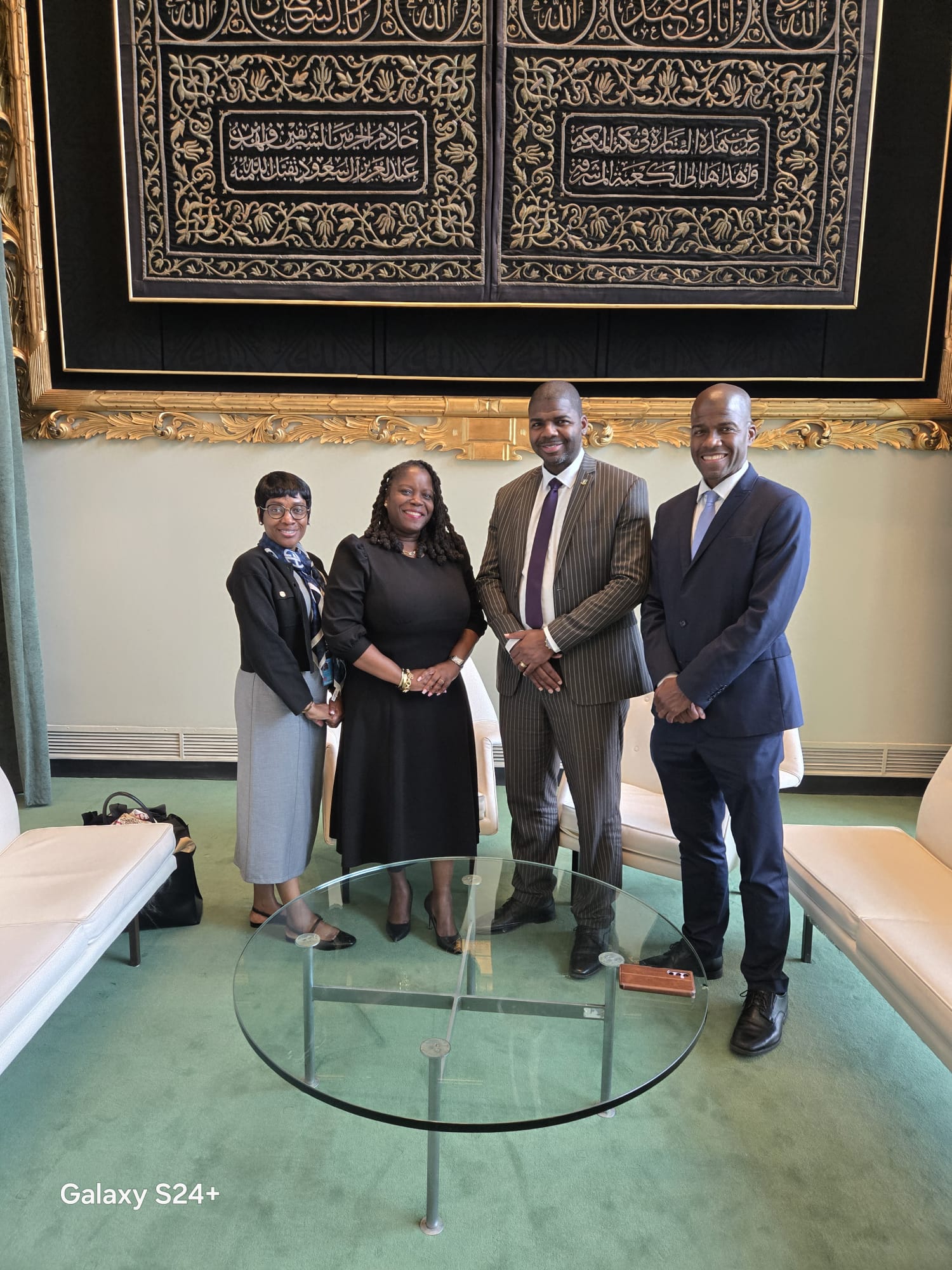Saint Kitts and Nevis Champions British Virgin Islands’ Self-Determination at UN Decolonization Committee Session.
The delegation from Saint Kitts and Nevis actively participated in the Special Committee on Decolonization session held at the United Nations headquarters in New York from June 9th to 20th, 2025, championing the right to self-determination for the British Virgin Islands and other non-self-governing territories. Headed by Ambassador Dr. Mutryce Williams and Special Committee Expert Mrs. Lecia Phipps, the delegation leveraged the platform to address several critical decolonization issues, reaffirming their nation’s commitment to the principle of self-determination as enshrined in the UN Charter and international law. The delegation’s presence and active involvement underscored the importance of international cooperation and dialogue in resolving complex colonial issues that continue to affect several territories around the world. Their engagement also highlighted the ongoing relevance of the Special Committee, also known as the C-24, in monitoring and advocating for the decolonization process.
A primary focus of Saint Kitts and Nevis’s participation was the question of the British Virgin Islands’ self-determination. The delegation reiterated their unwavering support for the people of the British Virgin Islands in their pursuit of self-governance, emphasizing the inherent right of all peoples to freely determine their own political status and pursue their economic, social, and cultural development. This support was further solidified through a meeting held on the sidelines of the session with British Virgin Islands Premier Honourable Dr. Natalio Wheatley and Special Envoy Mr. Benito Wheatley. The meeting provided an opportunity for both delegations to discuss strategies for enhancing cooperation in areas such as national security, trade, tourism, and disaster risk management. This bilateral engagement demonstrated the commitment of Saint Kitts and Nevis to fostering stronger ties with the British Virgin Islands and supporting their journey towards greater autonomy.
Beyond the British Virgin Islands, Saint Kitts and Nevis also addressed other pertinent decolonization issues on the C-24 agenda. The delegation reiterated their support for a peaceful resolution to the Falkland Islands (Malvinas) dispute between Argentina and the United Kingdom. They stressed the importance of dialogue and negotiations as the most effective means to achieve a lasting and mutually acceptable solution. Furthermore, Saint Kitts and Nevis expressed their support for the United Nations’ ongoing efforts to find a just and lasting resolution to the question of Western Sahara, emphasizing the importance of self-determination for the Sahrawi people. These interventions highlighted Saint Kitts and Nevis’s commitment to peaceful conflict resolution and the promotion of self-determination across different contexts.
The meeting between the delegations of Saint Kitts and Nevis and the British Virgin Islands explored avenues for further collaboration, reflecting a broader vision of regional cooperation and development. The discussions encompassed potential partnerships in national security, reflecting a shared interest in maintaining stability and addressing common security challenges. The delegations also explored opportunities to enhance trade and tourism, recognizing the potential for mutual economic benefit and growth. Furthermore, they addressed the critical area of disaster risk management, acknowledging the shared vulnerability of small island developing states to the impacts of climate change and natural disasters.
Beyond these pragmatic concerns, the two delegations also discussed opportunities for cultural exchange and people-to-people diplomacy. Recognizing the importance of cultural understanding and interpersonal connections, they explored ways to foster closer ties between the citizens of Saint Kitts and Nevis and the British Virgin Islands. Such initiatives can contribute to a stronger sense of regional identity and solidarity. The discussions between the two delegations exemplified the importance of multi-faceted cooperation and the potential for small island developing states to work together to address shared challenges and pursue common goals.
The Special Committee on the Situation regarding the Implementation of the Declaration on the Granting of Independence to Colonial Countries and Peoples, commonly known as the C-24 or the Decolonization Committee, plays a crucial role in the United Nations’ efforts to promote self-determination and eradicate colonialism. Established in 1961 by the General Assembly, the committee’s mandate is to oversee the implementation of the Declaration on the Granting of Independence to Colonial Countries and Peoples. This declaration, adopted in 1960, affirms the right of all peoples to self-determination and independence and calls for an end to all forms of colonialism. The C-24’s work involves monitoring the progress of decolonization in non-self-governing territories, providing a platform for representatives of these territories to voice their concerns, and making recommendations to the General Assembly on actions to advance the decolonization process. The committee’s membership comprises 29 countries, including Saint Kitts and Nevis, reflecting a diverse range of geographical representation and perspectives.
The C-24’s functions include the annual review of the list of Non-Self-Governing Territories to which the Declaration applies, ensuring continued attention to the specific circumstances of each territory. The committee also hears statements from representatives of these territories, providing a vital platform for their voices to be heard directly by the international community. Furthermore, the C-24 dispatches visiting missions to Non-Self-Governing Territories to assess the situation on the ground and gather firsthand information. These missions provide valuable insights into the challenges and opportunities facing these territories and inform the committee’s recommendations. The committee also organizes regional seminars to facilitate dialogue and exchange best practices on decolonization-related issues. The C-24 plays a vital role in upholding the principles of self-determination and promoting the decolonization agenda within the United Nations framework. Its work remains relevant in the 21st century as several territories continue to strive for self-governance and full realization of their right to self-determination.
Share this content:












Post Comment